RFE: Mr Tanic, it is little known whether there were negotiations between the official government in Serbia and representatives of the Kosovar Albanians during Milosevic's rule. The only negotiations that the public was informed about were those about the return of Albanian pupils and students to schools, which were mediated by the Catholic organization San Egidio. However, some claim that secret contacts and negotiations existed during the entire time since the outbreak of the crisis
in Kosovo.
Tanic: That is entirely correct. With the exception that I would describe those contacts as discreet, because that word secret contacts was a little too strong. That is, there were discreet negotiating processes between the official Belgrade, that is Milosevic's tripartite coalition, and the political representatives of Kosovo Albanians, from the end of 1994 to summer 1997. There were some fifty discreet meetings in various cities, from Pristina and Belgrade, even to Rome, the Vatican, and New York.
RFE: Who was in the negotiation teams from the Albanian and Serb sides?
Tanic: In the negotiation process from the Serbian side the participants were representatives of the then ruling coalition -- SPS, JUL, and New Democracy, and from the Albanian side there were Rugova's representatives, since Milosevic was quite clear that he regarded Rugova as the official political representative of the Kosovo Albanians. The chief Albanian representative was Fehmi Agani. A solid group of experts advised Rugova's negotiation team.
RFE: Can you tell me the names of people from the Serb side that participated in the negotiations?
Tanic: The most engaged were Ratko Markovic, Dojcilo Maslovaric, Ratomir Vico, myself, occasionally Dusan Mihajlovic and Vuk Draskovic, without regard that he did not belong to the ruling coalition, and also a group of experts with Predrag Simic at the head.
RFE: In what capacity were you as a member of that group, or should I say negotiation team?
Tanic: It was simply agreed that SPS, JUL, and New Democracy, as the members of the ruling coalition, were to work on the preparation of a political solution for Kosovo. To be entirely accurate, those negotiations were above all carried on in order to prepare a political solution to the Kosovo question. Each party in the team had one or two representatives.
In that team there was no chief or assistant negotiators. The preparations for the negotiations began at the end of 1994, and in 1995 the negotiations pressed on full speed ahead. By then the Dayton Accords were already being readied. It was evident that in Dayton the problem of Kosovo was not going to be on the agenda, and that was left to the Serb and Albanian side to solve by themselves. But the agreement about the schools that you already mentioned, was just
one of the results of those negotiations. Since the negotiations were conducted step by step, the first step was a whole series of measures for the establishment and the strengthening of trust. One of those measures was the agreement
about education.
[...]
RFE: What was achieved in the negotiations, or as you say, in the discreet contacts?
Tanic: An entire package of measures for the establishment and the strengthening of trust was defined. That package of measures included measures in the areas of education, public health, media, culture, and finally security measures. In principle, I emphasize in principle, a comprehensive political solution for Kosovo that avoided armed conflict was agreed upon. That solution later reappeared on several occasions and in different shapes in public. This is namely about the so-called broad autonomy of Kosovo, or if you will, about local self-governance of Kosovo Albanians, and that is pretty much one and the same. Aside from that, these negotiations held tensions at a low level, so that at the time there were very few incidents in comparison with the period after Milosevic annulled the negotiations. What was achieved in the negotiations was more than enough to avoid the war and for Belgrade and Kosovo Albanians to find a peaceful solution for the Kosovo problem. That solution was even practically defined. In the negotiations even representatives of the international community participated. Of course, once again discreetly. That is, those were not just two-sided negotiations between Serbs and Albanians sides, but three-sided negotiations
in which participants included representatives of the Contact Group and strong NGOs, who were actually representing the diplomacies of their own countries, but in an unofficial way.
During these negotiations the representatives of the international community were against any idea of secession of Kosovo and independence of the Kosovo Albanians. When the Albanian representatives saw that the international community does not support the secession of Kosovo, then they tacitly gave up that aim and found the fortunate formulation that independence of Kosovo would remain a long-term goal that cannot be achieved until all sides agree, meaning both Belgrade and the IC, which practically meant -- never, since nobody agreed with secession of Kosovo and so they tacitly gave up that demand.
RFE: And what did the broad autonomy mean?
Tanic: Broad autonomy of Kosovo practically included what Milosevic and Holbrooke signed on 13 October 1998, and I will
quote that for you:
"that Albanians have self-governance and that they can form institutions of local government, that they can form local police, that they have free and fair elections where they will elect their representatives in Kosovo, and that both sides refrain from violence and that as one of the measures for establishment of trust they form common security forces
[...]
In the political part of the agreement, Milosevic was obliged to implement a temporary solution by 2 November 1998. However, he never implemented that, nor did he intend to implement that, since he earlier annulled the results of two year negotiations. That was only his tactical maneuver to buy time.
RFE: You say that he annulled the results of the secret, or as you say, discreet negotiations. Were these negotiations conducted with Milosevic's knowledge and was he consulted about everything?
Tanic: Absolutely. There is no question about that.
RFE: So why did he annul the results of the negotiations?
Tanic: Milosevic always applied the strategy of inciting conflict. First, he constructs an ethnic conflict, then sets pseudo-patriotic aims that serve him to stay in power. You know how after the Dayton Accords [...] Serbia entered a period of relative peace. In the meantime, there arose a question of the legitimacy of his power and overall the aim of that power, since in peace it's obvious how historically wasted was Milosevic's rule [...] He annulled the results of the negotiations because he needed a new war, and in the new war he would still set pseudo-patriotic goals, and still play the role of protector of the Serbs.
RFE: Why didn't Milosevic sign the Rambouillet agreement? What was his motive? Officially it was said that he rejected foreign troops going to Kosovo.
Tanic: Milosevic did not sign that agreement since he needed a war with the NATO pact. That is the logic that I just described -- make up a conflict and then with the help of pseudo-patriotic aims stay in power. And the greater the conflict, the more the pseudo-patriotism looks like real patriotism. Milosevic really needed a conflict with the international community. That would be the ideal situation, he wanted the bombing to confirm the invented theses. That is like someone setting fire to your house in order to then play the role of the firefighter. What [Pres.] Milutinovic later said in the Assembly of Serbia was completely inaccurate. Together with Milosevic he misled the public that the main problem is in that the foreign troops want to invade Kosovo under the flag of NATO, and not under the UN flag. That is wrong, since the option of a UN mandate existed. Before bombing started, there was even the option that the entire Pristina corps stay in Kosovo and cooperate with the UN in keeping peace in Kosovo.
[...]
RFE: Mr. Tanic, was there a plan of ethnic cleansing of Kosovo before the NATO bombing, or was it as many in Serbia claim, that the expulsion of the Albanians was a consequence of the NATO bombing?
Tanic: There was a plan for ethnic cleansing. There was above all a plan to reduce the number of Albanians under a million, and after that it could be claimed that there are less than 50 percent of them and because of that they do not have the right for autonomy. It was a very clear plan, as there was a plan for ethnic cleansing itself. Our security organizations were not at all engaged in settling scores with the terrorists, but were settling scores with the population.
That is how, among other things, the Serb-Albanian conflicts started in early March 1998. Instead of arresting the Jashari brothers and some others, as the rules of combat state, you attack the houses where they live, kill their wives, children, relatives, and neighbors, and of course that provoked the revolt of the Albanian people, it would provoke revolt in any people.
Milosevic knew that with such measures he would provoke the Albanians into an uprising, and then he could say, "here, we have a rebellion". And, as for the incidents, I can tell you some statistics from our MUP. Let's say, in 1991 there were 11 terrorist acts, in 1992 there were 12, in 1993 were 8, 1994 had 6, 1995 had 11, but in 1998, when Milosevic started the provocation of the ethnic conflict, there were 1,885 terrorist acts. Then it's clear that the rise of terrorism
is a consequence of ethnic cleansing, not its cause.
[...]
RFE: Was there a consistent, worked-out plan, or was there simply an aim [of driving out Albanians]?
Tanic: That was a plan of Milosevic and his colleagues. Milosevic did not do any of the plans of provocation of ethnic conflicts institutionally, since he would be faced with the resistance from the military, the police, the security service. Those are institutions that in large measure, as much as they could, limited his engineering of conflicts. All those plans, I would say, he prepared in private circles and then implemented them through private channels.
RFE: Who were the people in the private circles, his private advisers? On whose opinions did he rely on the most when it came to policy toward Kosovo?
Tanic: The main word on Kosovo, I would say, came from the shadow state commission for Kosovo. That was a para-political body that included Sainovic, Matkovic, Andjelkovic, and generals Pavkovic and Velickovic. [...] They implemented his main ideas on Kosovo, by-passing the Assembly of both Serbia and Yugoslavia, by-passing the military, the security services,
the police. You know that regarding Kosovo Milosevic faced off with general Perisic, the chief of the general staff, and with the head of the state security Stanisic. He fired both in 1998, not to use worse words [...]. I am certain that [disagreement on Kosovo] was the reason, since both revolted against Milosevic's engineering of conflicts that did the most harm to, above all, the Albanians, but in the long-term to Serbs too, Because, provoking war with
the international community around the Kosovo question was in fact provocation of war within his own state. This is called, according to the criminal code of our country, treason. It is one thing to isolate terrorism, and it is another to kill women and children and to persecute the people. Milosevic's ethnic cleansing of Albanians led to the strengthening of the UCK, to a massive Albanian uprising, and finally to the conflict with the international community.
in Kosovo.
Tanic: That is entirely correct. With the exception that I would describe those contacts as discreet, because that word secret contacts was a little too strong. That is, there were discreet negotiating processes between the official Belgrade, that is Milosevic's tripartite coalition, and the political representatives of Kosovo Albanians, from the end of 1994 to summer 1997. There were some fifty discreet meetings in various cities, from Pristina and Belgrade, even to Rome, the Vatican, and New York.
RFE: Who was in the negotiation teams from the Albanian and Serb sides?
Tanic: In the negotiation process from the Serbian side the participants were representatives of the then ruling coalition -- SPS, JUL, and New Democracy, and from the Albanian side there were Rugova's representatives, since Milosevic was quite clear that he regarded Rugova as the official political representative of the Kosovo Albanians. The chief Albanian representative was Fehmi Agani. A solid group of experts advised Rugova's negotiation team.
RFE: Can you tell me the names of people from the Serb side that participated in the negotiations?
Tanic: The most engaged were Ratko Markovic, Dojcilo Maslovaric, Ratomir Vico, myself, occasionally Dusan Mihajlovic and Vuk Draskovic, without regard that he did not belong to the ruling coalition, and also a group of experts with Predrag Simic at the head.
RFE: In what capacity were you as a member of that group, or should I say negotiation team?
Tanic: It was simply agreed that SPS, JUL, and New Democracy, as the members of the ruling coalition, were to work on the preparation of a political solution for Kosovo. To be entirely accurate, those negotiations were above all carried on in order to prepare a political solution to the Kosovo question. Each party in the team had one or two representatives.
In that team there was no chief or assistant negotiators. The preparations for the negotiations began at the end of 1994, and in 1995 the negotiations pressed on full speed ahead. By then the Dayton Accords were already being readied. It was evident that in Dayton the problem of Kosovo was not going to be on the agenda, and that was left to the Serb and Albanian side to solve by themselves. But the agreement about the schools that you already mentioned, was just
one of the results of those negotiations. Since the negotiations were conducted step by step, the first step was a whole series of measures for the establishment and the strengthening of trust. One of those measures was the agreement
about education.
[...]
RFE: What was achieved in the negotiations, or as you say, in the discreet contacts?
Tanic: An entire package of measures for the establishment and the strengthening of trust was defined. That package of measures included measures in the areas of education, public health, media, culture, and finally security measures. In principle, I emphasize in principle, a comprehensive political solution for Kosovo that avoided armed conflict was agreed upon. That solution later reappeared on several occasions and in different shapes in public. This is namely about the so-called broad autonomy of Kosovo, or if you will, about local self-governance of Kosovo Albanians, and that is pretty much one and the same. Aside from that, these negotiations held tensions at a low level, so that at the time there were very few incidents in comparison with the period after Milosevic annulled the negotiations. What was achieved in the negotiations was more than enough to avoid the war and for Belgrade and Kosovo Albanians to find a peaceful solution for the Kosovo problem. That solution was even practically defined. In the negotiations even representatives of the international community participated. Of course, once again discreetly. That is, those were not just two-sided negotiations between Serbs and Albanians sides, but three-sided negotiations
in which participants included representatives of the Contact Group and strong NGOs, who were actually representing the diplomacies of their own countries, but in an unofficial way.
During these negotiations the representatives of the international community were against any idea of secession of Kosovo and independence of the Kosovo Albanians. When the Albanian representatives saw that the international community does not support the secession of Kosovo, then they tacitly gave up that aim and found the fortunate formulation that independence of Kosovo would remain a long-term goal that cannot be achieved until all sides agree, meaning both Belgrade and the IC, which practically meant -- never, since nobody agreed with secession of Kosovo and so they tacitly gave up that demand.
RFE: And what did the broad autonomy mean?
Tanic: Broad autonomy of Kosovo practically included what Milosevic and Holbrooke signed on 13 October 1998, and I will
quote that for you:
"that Albanians have self-governance and that they can form institutions of local government, that they can form local police, that they have free and fair elections where they will elect their representatives in Kosovo, and that both sides refrain from violence and that as one of the measures for establishment of trust they form common security forces
[...]
In the political part of the agreement, Milosevic was obliged to implement a temporary solution by 2 November 1998. However, he never implemented that, nor did he intend to implement that, since he earlier annulled the results of two year negotiations. That was only his tactical maneuver to buy time.
RFE: You say that he annulled the results of the secret, or as you say, discreet negotiations. Were these negotiations conducted with Milosevic's knowledge and was he consulted about everything?
Tanic: Absolutely. There is no question about that.
RFE: So why did he annul the results of the negotiations?
Tanic: Milosevic always applied the strategy of inciting conflict. First, he constructs an ethnic conflict, then sets pseudo-patriotic aims that serve him to stay in power. You know how after the Dayton Accords [...] Serbia entered a period of relative peace. In the meantime, there arose a question of the legitimacy of his power and overall the aim of that power, since in peace it's obvious how historically wasted was Milosevic's rule [...] He annulled the results of the negotiations because he needed a new war, and in the new war he would still set pseudo-patriotic goals, and still play the role of protector of the Serbs.
RFE: Why didn't Milosevic sign the Rambouillet agreement? What was his motive? Officially it was said that he rejected foreign troops going to Kosovo.
Tanic: Milosevic did not sign that agreement since he needed a war with the NATO pact. That is the logic that I just described -- make up a conflict and then with the help of pseudo-patriotic aims stay in power. And the greater the conflict, the more the pseudo-patriotism looks like real patriotism. Milosevic really needed a conflict with the international community. That would be the ideal situation, he wanted the bombing to confirm the invented theses. That is like someone setting fire to your house in order to then play the role of the firefighter. What [Pres.] Milutinovic later said in the Assembly of Serbia was completely inaccurate. Together with Milosevic he misled the public that the main problem is in that the foreign troops want to invade Kosovo under the flag of NATO, and not under the UN flag. That is wrong, since the option of a UN mandate existed. Before bombing started, there was even the option that the entire Pristina corps stay in Kosovo and cooperate with the UN in keeping peace in Kosovo.
[...]
RFE: Mr. Tanic, was there a plan of ethnic cleansing of Kosovo before the NATO bombing, or was it as many in Serbia claim, that the expulsion of the Albanians was a consequence of the NATO bombing?
Tanic: There was a plan for ethnic cleansing. There was above all a plan to reduce the number of Albanians under a million, and after that it could be claimed that there are less than 50 percent of them and because of that they do not have the right for autonomy. It was a very clear plan, as there was a plan for ethnic cleansing itself. Our security organizations were not at all engaged in settling scores with the terrorists, but were settling scores with the population.
That is how, among other things, the Serb-Albanian conflicts started in early March 1998. Instead of arresting the Jashari brothers and some others, as the rules of combat state, you attack the houses where they live, kill their wives, children, relatives, and neighbors, and of course that provoked the revolt of the Albanian people, it would provoke revolt in any people.
Milosevic knew that with such measures he would provoke the Albanians into an uprising, and then he could say, "here, we have a rebellion". And, as for the incidents, I can tell you some statistics from our MUP. Let's say, in 1991 there were 11 terrorist acts, in 1992 there were 12, in 1993 were 8, 1994 had 6, 1995 had 11, but in 1998, when Milosevic started the provocation of the ethnic conflict, there were 1,885 terrorist acts. Then it's clear that the rise of terrorism
is a consequence of ethnic cleansing, not its cause.
[...]
RFE: Was there a consistent, worked-out plan, or was there simply an aim [of driving out Albanians]?
Tanic: That was a plan of Milosevic and his colleagues. Milosevic did not do any of the plans of provocation of ethnic conflicts institutionally, since he would be faced with the resistance from the military, the police, the security service. Those are institutions that in large measure, as much as they could, limited his engineering of conflicts. All those plans, I would say, he prepared in private circles and then implemented them through private channels.
RFE: Who were the people in the private circles, his private advisers? On whose opinions did he rely on the most when it came to policy toward Kosovo?
Tanic: The main word on Kosovo, I would say, came from the shadow state commission for Kosovo. That was a para-political body that included Sainovic, Matkovic, Andjelkovic, and generals Pavkovic and Velickovic. [...] They implemented his main ideas on Kosovo, by-passing the Assembly of both Serbia and Yugoslavia, by-passing the military, the security services,
the police. You know that regarding Kosovo Milosevic faced off with general Perisic, the chief of the general staff, and with the head of the state security Stanisic. He fired both in 1998, not to use worse words [...]. I am certain that [disagreement on Kosovo] was the reason, since both revolted against Milosevic's engineering of conflicts that did the most harm to, above all, the Albanians, but in the long-term to Serbs too, Because, provoking war with
the international community around the Kosovo question was in fact provocation of war within his own state. This is called, according to the criminal code of our country, treason. It is one thing to isolate terrorism, and it is another to kill women and children and to persecute the people. Milosevic's ethnic cleansing of Albanians led to the strengthening of the UCK, to a massive Albanian uprising, and finally to the conflict with the international community.
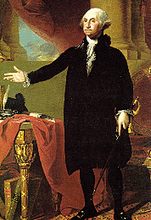
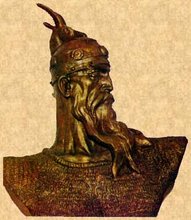
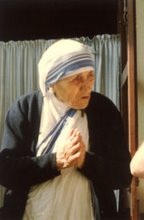








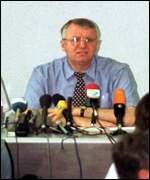
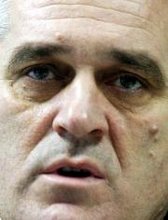








No comments:
Post a Comment